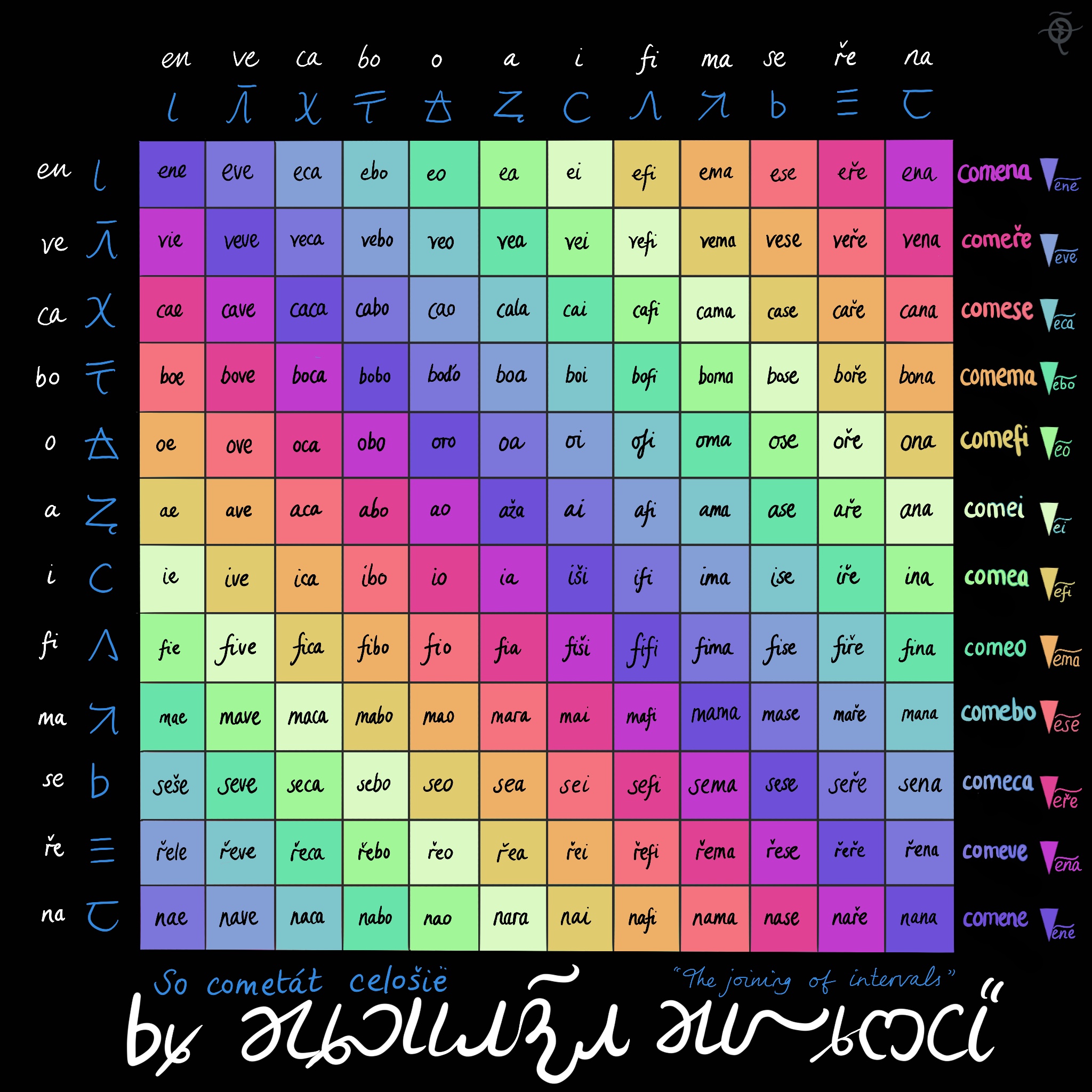
So cometát celošië (‘the joining of intervals’), or just so cometát in a musical context, is a part of the wider Eretaldan musical pedagogical tradition. Similar to solfège and the Indian saregama syllables, it embodies a tradition of singing melodies with their respective note-names as ‘lyrics’. The Eretaldan-Kebreni syllables are adapted from the note names in a fully chromatic lattice. A system of sandhi creates regularly shaped pitch-pair ‘words’, used as indeclinable nouns, where your pronunciation of the note varies depending on what precedes and follows it. The practice can easily be extended: to sing a longer phrase in so cometát, combine the pairs according to the same underlying rules.
For example: na + a + a = na(ra) + (až)a = naraža.
The system is international, but heavily varies from region to region as there are various local schools of it (as well as the major distinction of Verdurian/Kebreni versions). There are as many as nine variants for some of the 144 intervals, which I have omitted from this diagram; we might assume it shows the most common variants taught to music students in Verduria city. The Kebreni version is significantly different from the Verdurian, but close enough that musicians from each background can understand each others’ versions, even if they might struggle to produce them.
I have made a recording of me singing some Verdurian aural training exercises which e this diagram as a guide. You can listen to it here. The formula goes: “The intervals like [interval name, e.g. comeve] are…” followed by the pitch-pair word of that interval starting on each of the twelve notes of the octave (separated by er ‘and’). I found it quite tricky to do, but certainly a useful exercise. Enjoy hearing sounds which young Verdurian music students are probably absolutely sick of.
I haven’t yet given zomp a chance to yea- or nay-say a few elements of this (NB things I’m unsure about often get sorted via email before they end up here): in particular the formats for the names of the intervals (indeclinable nouns like comene). As always, this is all very much still up for discussion: please let me know if you’re unsure on anything!